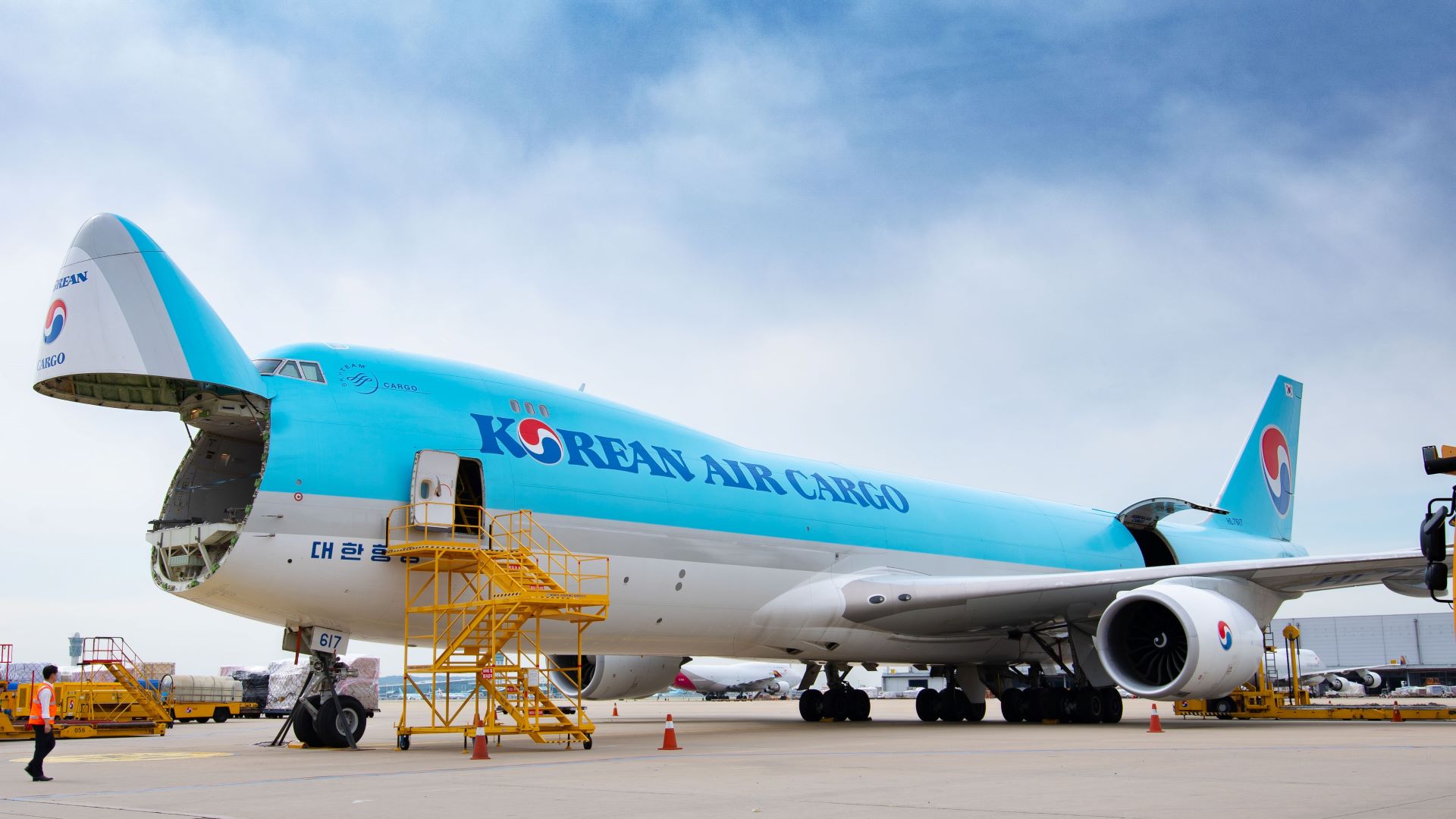Korean Air Secures Eight Boeing 777-8 Freighters to Upgrade Cargo Fleet
Korean Air has made a strategic move to strengthen and modernize its cargo operations by ordering eight Boeing 777-8 freighter aircraft. Scheduled for delivery by 2030, this acquisition is a bold step in expanding their fleet of all-cargo airplanes and supporting long-term growth in air freight capacity.
A Major Step in the Next-Generation Freighter Market
This order brings Korean Air closer to bridging the gap with Airbus in the competitive next-generation wide-body freighter sector. With this sizable addition, the airline is banking on increased operational efficiency and enhanced cargo capacity to meet growing logistics demands globally.
Highlights of the 777-8 Freighter’s Advantages
- The 777-8 freighter offers nearly the same cargo capacity as the venerable 747-400 but with approximately 30% better fuel efficiency.
- Operating costs per ton are expected to be 25% lower, making this aircraft a more economical choice for airlines focused on cost-effective freight movement.
- It has a substantially reduced environmental footprint, evidenced by up to a 60% smaller ground noise impact area compared to older models.
- Boeing anticipates beginning deliveries in 2028, following development delays, aligning with Korean Air’s 2030 introduction plan.
Current Korean Air Cargo Fleet and Market Position
Korean Air ranks as the world’s sixth-largest cargo airline by traffic. The carrier currently operates a mixed fleet including seven Boeing 747-8 freighters, twelve 777 freighters, and four 747-400 freighters—some of which came from the acquisition of Asiana Airlines in 2023. Beyond dedicated freighters, cargo shipments via passenger flights further diversify the airline’s logistics capabilities.
| Aircraft Type | Quantity Operated | Notes |
|---|---|---|
| Boeing 747-8 Freighters | 7 | Long-range, high-capacity freighters |
| Boeing 777 Freighters | 12 | Wide-body, fuel-efficient cargo planes |
| Boeing 747-400 Freighters | 4 | Inherited from Asiana Airlines acquisition |
Industry Context: Boeing vs. Airbus at the Freighter Forefront
Boeing has secured a total of 63 orders for the 777-8 freighter model, including recent purchases by China Airlines. Qatar Airways remains the launch customer for this new platform. Meanwhile, Airbus is not standing still and has been developing its own wide-body freighter based on the A350 passenger jet. Despite some contracts being scaled back, Airbus maintains over 60 reservation slots for production of their freighters, keeping the competition fierce in this segment.
777-8 Freighter vs. Airbus A350 Freighter
- 777-8 Freighter: Strong focus on fuel efficiency and noise reduction, near parity in cargo volume with legacy 747-400 models.
- A350 Freighter: Aiming to challenge Boeing’s stronghold by leveraging advanced passenger jet technology to build a competitive freighter.
Logistics Impact of Next-Gen Freighters
In the world of cargo logistics, aircraft with better fuel efficiency and cost-effectiveness translate directly into more competitive freight rates. For shippers and freight forwarders, this means improved access to reliable and economic air transport solutions, especially for bulky and time-sensitive shipments. Korean Air’s decision to modernize with the 777-8 freighters is a key illustration of how airlines adapt their fleets to meet evolving global shipping demands.
With growing e-commerce and international trade, the freight industry benefits from technological advancements in aircraft design. The lower environmental impact and improved operational economics help create a more sustainable global supply chain, where large-scale bulky cargo, international parcel deliveries, and time-critical shipments move efficiently.
Korean Air’s Aerospace Ties with Boeing
Korean Air’s engagement goes beyond just operating planes—they also have an Aerospace Division that manufactures parts for Boeing airplanes, including the 777 family. This close relationship supports not only fleet growth but also maintenance and production collaboration, boosting the airline’s overall logistics and technical prowess.
True Value Lies Beyond Reviews
While reviews and feedback give solid insight, nothing can replace firsthand experience when evaluating air cargo services. Platforms that offer transparency, affordability, and a broad range of choices empower logistics managers to make savvy decisions without blowing budgets or compromising reliability.
On GetTransport.com, customers can book transport de marchandises at competitive prices worldwide, enjoying convenience and clarity throughout the process. The platform’s versatility covers everything from office relocations and home moves to shipping bulky freight, vehicles, or palletized loads. This breadth of service, coupled with honest pricing, places it head and shoulders above many competitors.
Get the best offers on cargo transport with GetTransport.com.
Looking Ahead: How This Order Shapes Freight and Logistics
Although the impact of new freighter orders may seem a niche piece in the giant puzzle of global logistics, these moves shape airline cargo capacities and routes over the next decade. Improved aircraft efficiency helps reduce costs and carbon footprints—two hot topics in transportation sectors worldwide.
Korean Air’s investment signals a commitment to staying ahead in the freight game, keeping pace with shifting market needs and technological progress. Such developments support smoother, faster international expédition de fret and transport, helping supply chains stay agile and resilient.
Commencez à planifier votre prochaine livraison et sécurisez votre cargaison avec GetTransport.com.
Résumé
Korean Air’s recent order for eight Boeing 777-8 freighters underscores a significant shift toward more modern, efficient, and environmentally conscious air cargo fleets. This move not only closes the gap with Airbus in the next-gen freighter domain but also promises lower operating costs and enhanced fuel efficiency that benefit global logistics chains.
With a robust existing fleet and strategic aerospace partnerships, Korean Air is well-positioned to meet future freight demands, while the freighter market remains competitively active between Boeing and Airbus innovations.
For businesses looking to capitalize on these advancements, platforms like GetTransport.com offer vital support—bringing affordable, reliable, and varied global shipping options at users’ fingertips. Whether it’s moving bulky freight, pallets, or containers, GetTransport.com streamlines the complex world of freight transport, aligning perfectly with modern logistics needs and helping customers navigate the evolving landscape of international transport.

 Korean Air Enhances Cargo Capabilities with New Boeing 777-8 Freighter Order">
Korean Air Enhances Cargo Capabilities with New Boeing 777-8 Freighter Order">